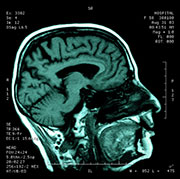92 percent said it was worthwhile, with fewer seizures and higher quality of life
FRIDAY, Feb. 27, 2015 (HealthDay News) — More than nine in 10 epilepsy patients who had brain surgery to try to control their seizures are happy they did so, according to survey findings published in the February issue of Epilepsy & Behavior.
The study authors focused on a pool of 470 men and women with epilepsy. All had been operated on between 1993 and 2011. Ninety-two percent of patients said they considered their surgery to be “worthwhile.” Slightly less than one-third said they were currently seizure-free, while three-quarters described the results of their surgery as “favorable,” meaning total seizure relief or only rare occurrences of “disabling” seizures. Those “favorable” outcomes held steady over time, seen among 77 percent of patients during the five years after surgery and among 78 percent of patients who reached the 15-year-plus mark.
Seizure-free status was somewhat less steady, seen among 41 percent prior to the five-year mark, but only among 29 percent after five to 10 years. Between 10 and 15 years after surgery, the numbers rose back to 38 percent, only to drop to 26 percent among the 15-year-plus group. One-fifth of the patients said they were no longer taking any kind of anti-seizure medication following surgery. Use of antidepressants increased to 30 percent following surgery (up from 22 percent beforehand), 51 percent said they were able to drive postsurgery, compared with just 35 percent before.
Study coauthor Marianna Spanaki-Varelas, M.D., Ph.D., M.B.A., director of the Henry Ford Comprehensive Epilepsy Program at Henry Ford Hospital in Detroit, said that epilepsy surgery is still highly underutilized in this country. “There is a misconception, even among physicians, that surgery should be considered the very last resort,” Spanaki-Varelas explained to HealthDay. “But we should not delay surgery until all drugs are tried. If a patient fails on one, two or, at maximum, three medications, alone or in combination, then they need to be considered as [surgical] candidates.” That position, Spanaki-Varelas noted, is supported by the American Academy of Neurology.
Full Text (subscription or payment may be required)
Copyright © 2015 HealthDay. All rights reserved.








